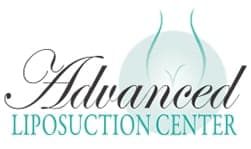Surgery-Free Body Contouring Coolsculpting: Non-Surgical Fat Reduction

Facts at a Glance
Overview:
- CoolSculpting is a licenced non-surgical cooling technique proven to shrink fat pockets in focused areas for Surgery-Free Body Contouring
- This method was chiefly introduced to remedy specific pockets of fat that will not respond to regular weight loss techniques.
- Based on cryolipolysis, CoolSculpting has been scientifically proven to freeze and destroy fat cells by exposing them to targeted cold temperatures.
- CoolSculpting has proven to successfully reduce the amount of fat cells. Especially effective in some of the most troubling areas such as: the abdomen, sides, the inner and outer thighs, the upper arms and chin.
Record of Safety: Surgery-Free Body Contouring
- In 2012, the US Food and Drug Administration (FDA) approved CoolSculpting.
- To date, around 4,000,000 procedures have been performed worldwide.
- Since the procedure is non-surgical, it does not require anesthesia.
- Some individuals report acute side effects. These typically go away on their own in a few days following treatment. These minor side effects can include bruising, swelling, and sensitivity.
- If you have a history of severe sensitivity to cold temperatures or Raynaud’s disease, CoolSculpting may not be right for you .
- Men are the fastest growing segment of the population using Coolsculpting
Convenience:
- The typical procedure lasts between 1 to 3 hours.
- There is little to no recovery time. Most people return to their normal daily routine immediately after the procedure.
- CoolSculpting is available in a variety of locations. It can be administered by a plastic surgeon or a properly trained physician.
Cost:
Effectiveness:
- Studies show up to 80 percent fat loss in the treated area following a single cryolipolysis procedure.
- Over 85 percent of people show improvements after three months.
- Almost 75 percent of patients reported satisfaction with the procedure.
- Over 80 percent of those that received a treatment would recommend it to a friend.
- Over 95 percent report none to tolerable discomfort during the procedure.
How to get the best results from body contouring?
Body contouring is a cosmetic procedure that helps to reshape and tone specific areas of the body, such as the abdomen, thighs, and arms. Here are some tips to get the best results from body contouring:
- Choose the right provider
It is crucial to select a qualified and experienced provider for your body contouring procedure. Research potential providers thoroughly, ask for recommendations, and check their credentials to ensure they are licensed and certified in their field. This will help ensure that the procedure is performed safely and effectively.
- Be at a stable weight
Body contouring works best when you are close to your ideal weight. Fluctuating weight can affect the results and may require additional procedures. It is important to maintain a stable weight for a few months before and after the procedure.
- Follow pre-and post-operative instructions
Before the procedure, follow your provider’s instructions for preparation, such as abstaining from alcohol and smoking. After the procedure, follow all post-operative instructions, such as wearing compression garments, taking prescribed medications, and avoiding certain activities.
- Stay hydrated
Staying hydrated helps the body heal and recover after the procedure. Drinking plenty of water and avoiding alcohol and caffeine can help promote healing and reduce swelling.
What to avoid after the treatment?
After body contouring treatment, it is important to avoid certain activities and behaviors to ensure optimal results and minimize complications. Here are a few things to avoid:
- Strenuous physical activities: Avoid activities that put excessive strain on the treated area, such as heavy lifting, vigorous exercise, or high-impact movements, as they can disrupt the healing process.
- Sun exposure: Direct sun exposure can worsen swelling, inflammation, and pigmentation changes. It is advisable to avoid prolonged sun exposure and use sun protection measures like wearing protective clothing and applying sunscreen to the treated area.
